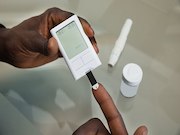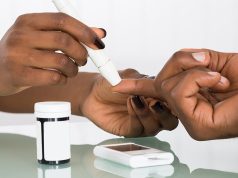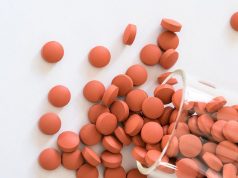Increased time in the near normoglycemic range and reduced time in hypo- and hyperglycemia
THURSDAY, April 19, 2018 (HealthDay News) — For patients with type 1 diabetes, artificial pancreas treatment is efficacious, increasing the proportion of time spent in the near normoglycemic range, according to a study published online April 18 in The BMJ.
Eleni Bekiari, M.D., Ph.D., from the University of Thessaloniki in Greece, and colleagues conducted a systematic review and meta-analysis to examine the efficacy and safety of artificial pancreas treatment in non-pregnant outpatients with type 1 diabetes. Forty randomized controlled trials with 1,027 participants and data for 44 comparisons were analyzed.
The researchers found that 35 of the comparisons examined a single-hormone artificial pancreas system, while nine assessed a dual-hormone system. A low risk of bias was seen in only nine studies. Artificial pancreas use was associated with a significantly higher proportion of time in the near normoglycemic range, both overnight (weighted mean difference, 15.15 percent) and over a 24-hour period (9.62 percent). A favorable effect was seen with the artificial pancreas system for the proportion of time with sensor glucose level above 10 mmol/L or below 3.9 mmol/L over 24 hours compared with control treatment (−8.52 and −1.49 percent, respectively). Sensitivity analyses verified the robustness of the findings.
“Artificial pancreas systems are an efficacious and safe approach for treating outpatients with type 1 diabetes,” the authors write.
Several authors disclosed financial ties to the pharmaceutical and medical device industries.
Copyright © 2018 HealthDay. All rights reserved.








